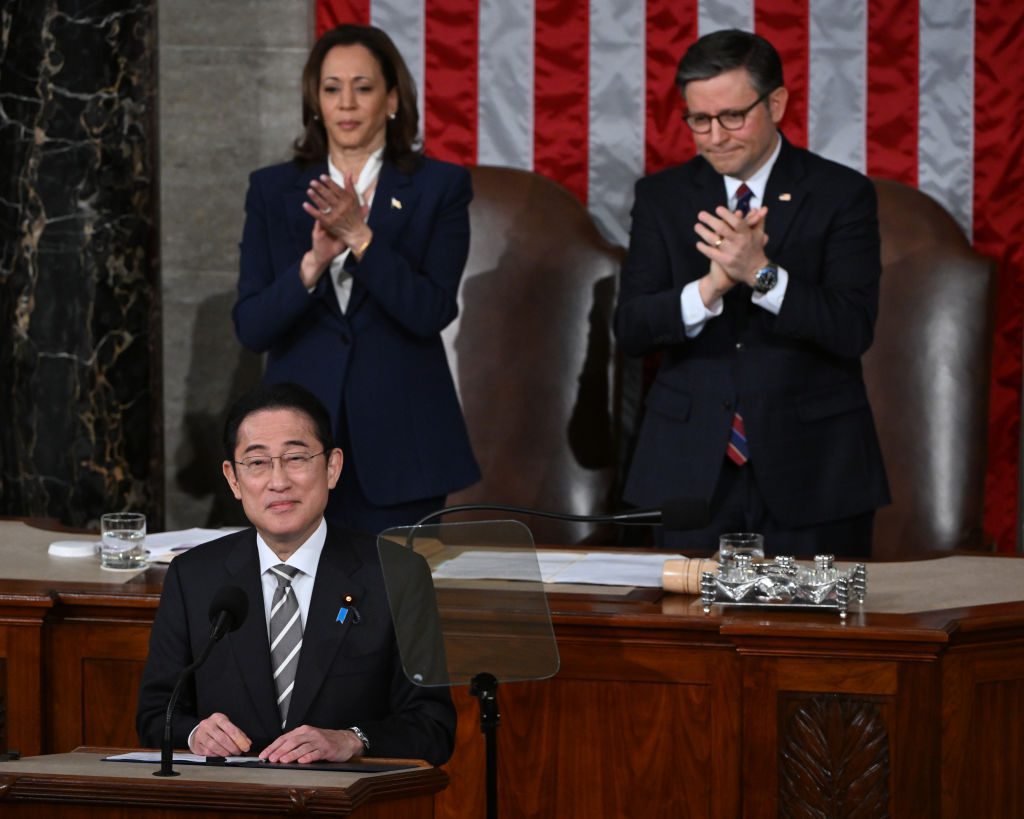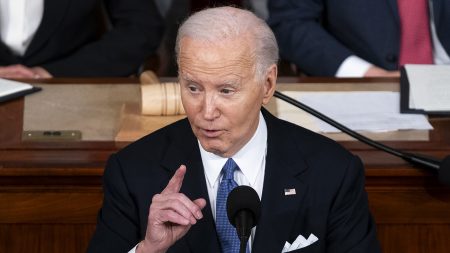This week, Congress is facing a crucial question: do we support our allies to prevent aggression, or do we let Russia, Iran, and the Chinese Communist Party (CCP) take over the global stage?
This is exactly what the upcoming vote on the Biden administration's extra national security funding is about.
Recent polling Research indicates that most American voters think there's a 50-50 chance of war with China. Almost 80 percent of them believe we should concentrate more on preventing war with China instead of preparing for one.
To put it plainly: Supporting the extra funding means preventing war. Opposing it means a world where authoritarianism is encouraged and U.S. leadership on the global stage is weakened, which could lead to more armed conflicts initiated by aggressive nations from Tehran to Beijing.
The extra funding helps prevent war with the CCP in three main ways. Firstly, it directly supplies deterrent items to our Indo-Pacific partners. Secondly, it establishes new strong relationships with diplomatic allies. And thirdly, it demonstrates our determination to support Ukraine, which both Taiwan and the CCP are closely monitoring.
Firstly, the extra funding offers practical measures to combat CCP aggression and ensure the CCP doesn't make dangerous mistakes.
The proposed $2 billion for foreign military support in the Indo-Pacific and $1.9 billion to restock weapons and provide training to Taiwan are particularly vital in deterring CCP aggression. The bill also allocates billions toward our significant AUKUS relationship with Australia and the UK. These funds will help bolster the free world's extended deterrence to maintain peace and stability in the Indo-Pacific.Each of these elements is crucial to effective deterrence and standing alongside our Indo-Pacific partners in the face of CCP aggression. Providing the extra funding is a crucial, proactive measure. directly Secondly, the House's review of the extra national security funding comes at a time of great potential for solidifying our diplomatic partnerships, especially with Indo-Pacific nations confronting CCP intimidation.
Like us, Japan, Taiwan, and the Philippines are Pacific nations. These countries deal with destabilizing threats and intimidation from the CCP on a daily basis.
The windows of Filipino coast guard ships have been damaged by People's Liberation Army (PLA) water cannons. Taiwan's air defense identification zone is regularly approached by PLA jets. Japanese officials have been threatened by the CCP for promising to maintain peace and stability in the Taiwan Strait.
The Biden administration recently held the first ever U.S.-Japan-Philippines leaders' summit, where trilateral coast guard exercises and cybersecurity cooperation were announced. Congress also welcomed Japanese Prime Minister Fumio Kishida to deliver a joint session speech, during which he reaffirmed that “Japan is already standing shoulder to shoulder with the United States. You are not alone. We are with you.” It's time for the U.S. to reaffirm our commitment. commitments to our allies and partners—by approving the national security extra funding. We can’t just talk the talk. We must walk the walk. And third, approving the national security helps keep peace and stability. And . I recently came back from a bipartisan congressional visit to Taiwan. Interestingly, the top question every person we met with was whether we would approve aid to Ukraine. Why? Because they see it as crucial to sending a message to Beijing to prevent military aggression against Taiwan. Supporting Ukraine means supporting our Indo-Pacific partners. We cannot be strong on the CCP and weak on defending Ukraine.
This national security extra funding is not just about Ukraine, Taiwan or any one democracy. It’s about preventing future conflict. We cannot go it alone. Our strengths lie in our alliances, partnerships and friendships around the free world. And that starts with approving the national security extra funding in its entirety.Congressman Raja Krishnamoorthi is the ranking member of the House Select Committee on the Strategic Competition Between the U.S. and the Chinese Communist Party (CCP).
This national security extra funding is not just about Ukraine, Taiwan or any one democracy. It’s about preventing future conflict. own commitments to our allies and partners—by passing the national security supplemental. We can’t just talk the talk. We must walk the walk.
And third, passing the national security maintains peace and stability implicitly. I recently returned from a bipartisan congressional delegation to Taiwan. Interestingly, the No. 1 question every person we met with was if we would pass aid to Ukraine. Why? Because they see it as vital to sending a message to Beijing to deter military aggression against Taiwan.
Standing with Ukraine means standing with our Indo-Pacific partners. We cannot be tough on the CCP and weak on defending Ukraine.
This national security supplemental is not just about Ukraine, Taiwan or any one democracy. It’s about deterring future conflict.
We cannot go it alone. Our strengths lie in our alliances, partnerships and friendships around the free world. And that starts with passing the national security supplemental in its entirety.
Congressman Raja Krishnamoorthi is the ranking member of the House Select Committee on the Strategic Competition Between the U.S. and the Chinese Communist Party (CCP).







